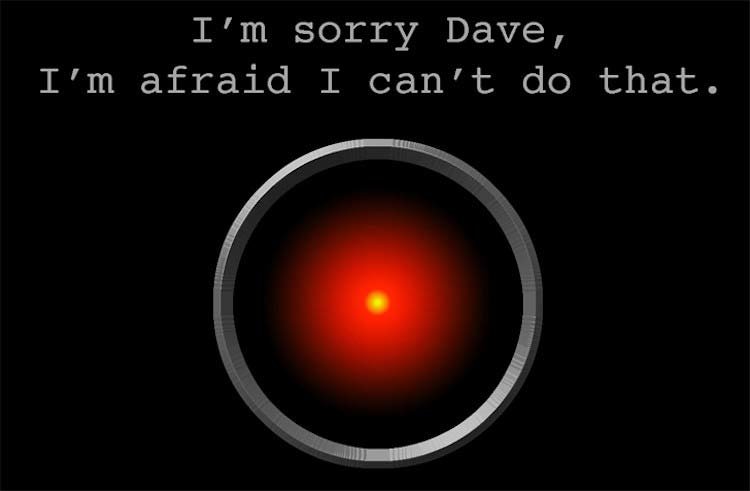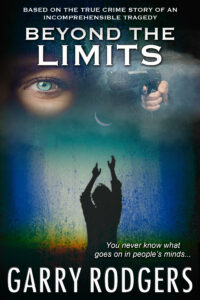Agents, editors, and publishers always watch for that new and fresh voice. They believe the next bestseller—the next blockbusting author—is out there, a voice just waiting discovery.
Voice is a hard animal to describe. It has various definitions. Technically, (in writing school 101) voice refers to “the rhetorical mixture of vocabulary, tone, point of view, and syntax that makes phrases, sentences, and paragraphs flow in a particular manner.” Non-technically, it’s like a Supreme Court judge said in a ruling on pornography, “It’s hard to describe in words, but I know it when I see it.”
New and fresh are easier concepts to grasp, and I recently connected with a lady who I sincerely believe has a great voice—a new and fresh voice—and has the whole package to become a highly successful crime writer. Normally, a writer’s bio would appear at the end of their article but, in this case, you’ll better appreciate her voice by me introducing her first.
 Jennifer Pound is a recently retired police officer where she thrived in various traditional and non-traditional policing roles. She spent years as the face of the RCMP (Royal Canadian Mounted Police) as a communications director. Her recent role was with IHIT, Vancouver’s Integrated Homicide Investigation Team — the largest homicide unit in Canada — where she saw the worst of people and helped to bring justice for the victims that died at the hands of evil.
Jennifer Pound is a recently retired police officer where she thrived in various traditional and non-traditional policing roles. She spent years as the face of the RCMP (Royal Canadian Mounted Police) as a communications director. Her recent role was with IHIT, Vancouver’s Integrated Homicide Investigation Team — the largest homicide unit in Canada — where she saw the worst of people and helped to bring justice for the victims that died at the hands of evil.
As a result of her time on the job, and the darkness that comes with it, Jennifer suffered with PTSD. She continues managing this daily. Writing is part of her healing. It’s her outlet—a way to connect with others. As a forum for mental health support and awareness, Jennifer created a blog for all first responders fighting the same battle.
Through this blog, Jennifer Pound realizes her passion for writing and the vulnerability needed to share such personal stories. This passion continues with healing through a focus on crime writing, and she’s currently working on her first novel. It’ll showcase how endless homicides take their toll on even the strongest cops, and sometimes the effects are difficult to recognize — they’re dangerous and lingering…
Please welcome my friend, Jennifer Pound, to the Kill Zone with a post she wrote on her personal blog at STAY ON THE LINE — Social Support for all First Responders.
— — —
The Lasting Effects by Jennifer Pound
The lasting effects of the job, I believe, is an area where first responders suffer in silence. Right out of the gate, recruits/cadets should know what to expect potentially.
We’re trained extensively and continuously for physical combat. We can negotiate and manipulate various situations to uphold the security of our country. We even know that, should we have to use deadly force, it could have the potential to sit with us in ways that are ugly and altering.
But what about the day-to-day stressors of the job that we carry with us, even when off duty?
The damaging and lasting effects run deep.
Hypervigilance is a bitch. I haven’t known a retired police officer yet who hasn’t carried it into retirement. It’s ingrained into us. Always look for the threat. Always look for evidence of evil. Trust no one. I know that sounds dramatic, but it’s the reality and it’s exhausting.
Retired — I find myself trying to enjoy things I once really enjoyed. Hikes, bike rides, walks, swims, nature. I will force myself to do it because my body likes it, but my head is on a swivel, and my imagination is like a kid in a candy store, although, unlike the candy store, my mind runs rampant looking for the next magnificent piece of disaster.
 Many police officers think the absolute worst; it’s a gift we’ve so graciously received, or perhaps more like a curse. Few of us can drive by a bag of garbage or a rolled-up carpet on the highway and not think about the nightmare that must live within. I’ve often wondered if it was just me, but I know with certainty, it’s not.
Many police officers think the absolute worst; it’s a gift we’ve so graciously received, or perhaps more like a curse. Few of us can drive by a bag of garbage or a rolled-up carpet on the highway and not think about the nightmare that must live within. I’ve often wondered if it was just me, but I know with certainty, it’s not.
I’ve been working hard on trying to negate these feelings. I force myself to tell a positive story about what I see. Maybe the rolled-up carpet is to give a little extra decor to the highway, or the garbage bag is full of bustling butterflies that are ready to wow the world, or maybe it’s just a bunch of assholes littering. Sadly, my brain quickly tells me to ease up on the bullshit, and the worst-case scenario wins out most of the time.
During my hikes lately, I’ve been forcing myself to tackle my demons. I see a sock in the bush, a garbage bag torn and tattered, an abandoned baby stroller, or a single shoe. For the rest of the hike, I get lost in negative, unhealthy thoughts or memories of terrible moments throughout my career. This past month I’ve switched it around a bit, and during my walks, I’ve taken photos of the things that look sketchy and cause concern. When I get home, I study these photos to a point where I feel ridiculous for letting my mind wander, (except the baby stroller, I can’t spin any good into that one.)
The part that saddens me is this. Seeing the beauty of a park or enjoying a nature walk or ravine hike has not been standard practice for me for quite some time. I will not enter these places and feel the serenity that, for many, nature represents. It will rest in the back of my mind that darkness is there somewhere, lurking, waiting for an opportunity to prove my paranoid, pessimistic self, right.
I force myself to make decisions that I feel are “normal,” particularly around my kids. I don’t want to raise paranoid kids. I want them to be smart, safe, and savvy but not neurotic and scared of the world through the eyes of their Mother.
I remember just a few months back; I had an appointment in the morning during school drop off so I couldn’t drive my kids to school. I reluctantly let my two younger girls, 12 and 10, walk the near-mile to school. This distance pales in comparison to the walk I would do to get to elementary school. It felt like I left at 3 am to make it on time.

Ted Bundy’s VW Beetle
One morning, when I was about 11 years old, I woke up, got myself breakfast, scurried out the door, and at the halfway mark my brother and friend (for the sake of their privacy we’ll call them Brad and Todd) drove by me just about the same time I was avoiding a British Columbia puddle after a week’s worth of rain. They drove through the pooling puddle, leaving me soaked, muddy, and cold. After that, I always kept an eye out for that stupid, orange Volkswagen. The joys of older brothers, but I digress.
My girls ended up walking to school, and when I made it home from my appointment, at about 8:30 am, I realized I had missed a call from my daughter. In her message, she told me someone followed her and her sister to school, or so she thought. Her message then said she had to go because the bell rang.
The BELL!!??
How could the bell be relevant right now??
At this point, I had already geared up in what camo I had left in my closet. It turns out it was just a belt and some PJ’s, but I wore it anyway, and I jetted out the door to talk to her. Thankfully she called me back and filled me in on the rest before I had to get out of my car. The details… she provided… were as follows:
My girls left home and noticed a man following them a short time later. He followed them a good while when the oldest started to wonder if it was just her imagination. Maybe he was just an ordinary hoodie-wearing man, carrying a hubcap, walking through our neighborhood before school.
 To test the theory, she made a bit of a detour. She turned down a cul-de-sac with few homes that only residents that lived there would need to access. She walked for a bit and then did an about-face, like she forgot something, crossed the road, and turned back. Hub cab carrying, douchebag guy continued to follow them. At this point, she was terrified. She grabbed her sister’s hand, and she ran. They ran until they reached the school and she lost sight of him. That’s when she called me.
To test the theory, she made a bit of a detour. She turned down a cul-de-sac with few homes that only residents that lived there would need to access. She walked for a bit and then did an about-face, like she forgot something, crossed the road, and turned back. Hub cab carrying, douchebag guy continued to follow them. At this point, she was terrified. She grabbed her sister’s hand, and she ran. They ran until they reached the school and she lost sight of him. That’s when she called me.
Now, it took me quite some time to process this. My immediate thought was she’s F#$%ing with me because she’s mad I couldn’t drive them this morning, Once she mentioned him carrying what she described as the silver part of the inside of a tire, I knew it was no story. I felt guilt and fear for not trusting my gut, which initially told me walking to school equals danger.
My brain rewarded me by keeping me awake all night to play over the what-ifs in my mind—a super non-restful night.
I woke up looking and sounding like the chain-smoking aunts, Patty and Selma, from the Simpson’s cartoon. The next morning my husband and I provided the girls with a double police escort, followed by surveillance and light interviewing. I was now in a place to say to my positive, trusting self, “I told you so!!” The world is full of trauma, just waiting to happen.
As you can imagine, this all required an expedited visit to Mark, my psychologist, to let him know that he’d been wrong all this time and I knew I was right all along. The world truly has no good. I intended to leave his office feeling vindicated. But instead, I went with a sense of peace and realization that my girls, all my children, are way smarter than me. It was one of my favorite sessions, one where I learned so much in one little hour.
He helped me realize my girls knew what to do and then some. Their actions exceeded my expectations for grown-ups, let alone children. It turns out my daughter gave a rockstar statement and a substantial description of the guy when the police came to our house to interview them.
What Mark had made me realize is that they are okay; they are smart and full of common sense and ability and fight. I never once factored any of those things into my fear, and my fear is what has the potential to hinder my children’s growth and my own.

My perspective changed that day.
Yes, I was terrified and vengeful, but I didn’t let the fear catastrophize. I didn’t create the movie reel in my head that always ended badly. I stopped thinking about what-ifs and concentrated on how proud and relieved I was to know that they negotiated that situation beautifully, and I was so proud of them.
Don’t get me wrong, I still sit in my car every morning waiting to jump douchebag guy, but that’s for a different post. A big part of my recovery has been retelling the story. Had that incident happened a year ago, my reaction would have been much different and lasting, and my girls would still be locked in the house and homeschooled.
Much like my nature photos, I’ve created a movie reel that is more based on reality rather than my own knowledge and work experience. I’ve shifted my movie reel from say, a Quentin Tarantino film to a James Cameron film. It’s much easier on the soul.
For those of you who connect with these words, and are driven slightly crazy by your mind and anxiety-inducing moving reels, I offer the above, not as a solution, but as a step in the right direction towards a more peaceful you. If you are looking to ease the anxiety and decrease your racing brain’s impact, then work on retelling your story. Your mind, body, and soul will thank you for it, well into your deserved retirement.

From The Kill Zone’s Garry Rodgers: In my opinion, that’s voice. Jennifer Pound is fresh and new to the crime writing world, and I know she’ll kill it with her debut novel. Let’s welcome Jenn into our Kill Zone family, and I’m sure supportive comments are coming. ~Garry


 I’m keeping a close eye on Text-To-Speech (TTS) technology. I think the next tech wave is interactive ebooks where the reader will have a solid listener option for the device to convincingly turn the text into a realistic voice. That virtual reality already exists. It’s just not perfected yet. But my bet is within a few short years AI will allow a quick tap on your eReader, and you’ll listen to your book as if Bitching Betty was real.
I’m keeping a close eye on Text-To-Speech (TTS) technology. I think the next tech wave is interactive ebooks where the reader will have a solid listener option for the device to convincingly turn the text into a realistic voice. That virtual reality already exists. It’s just not perfected yet. But my bet is within a few short years AI will allow a quick tap on your eReader, and you’ll listen to your book as if Bitching Betty was real. There’s some good AI reading apps out there, no doubt. Amazon’s Polly is remarkable. Word on the street is that AZ has an experimental TTS program on the go that aims to perfect NGL (natural language generation) on Kindle devices. Currently, AZ has a Kindle text-to-speech enablement that’s terribly inefficient. Here’s a quote about the new TTS program from an Amazon side channel I found in the r-hole:
There’s some good AI reading apps out there, no doubt. Amazon’s Polly is remarkable. Word on the street is that AZ has an experimental TTS program on the go that aims to perfect NGL (natural language generation) on Kindle devices. Currently, AZ has a Kindle text-to-speech enablement that’s terribly inefficient. Here’s a quote about the new TTS program from an Amazon side channel I found in the r-hole:
